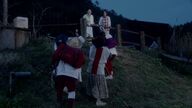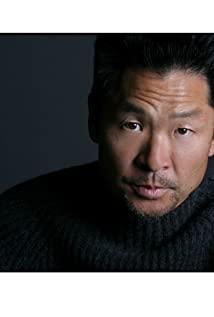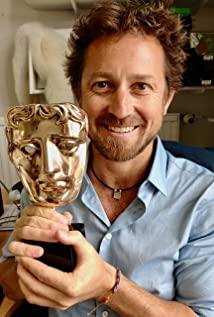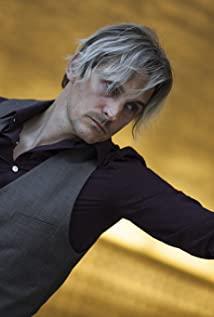-
Janiya 2022-10-23 22:05:05
Its cheesy touched me deeply
I give this movie five stars without having seen the original.
After reading it, I hurriedly called my friend with tears in my eyes. I'd say it's a cheesey-to-the-end film, a 80s fashion film made with 21st century standards. The singing and dancing in the middle looked goosebumps all over. Modern... -
Gabriel 2022-10-23 19:14:17
keeping mum warm family comedy
There are a few movies that don't seem to be made by Sanchi, "China's Birdman", "Ghost Xiaozhu".
However, after watching "The Uninvited Guest Q", you can know that Miike is actually a director who is surly on the outside but full of warmth in his heart. Coincidentally, the director Shinya Tsukamoto...
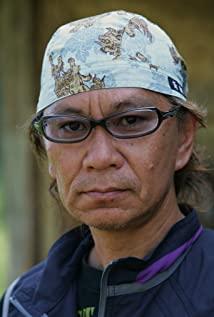
Takashi Miike
Takashi Miike (Takashi Miike), born on August 24, 1960 in Yao City, Osaka Prefecture, Japan, is a Japanese actor, screenwriter, and director.
In 1991, the video film "Storm! "Mini Patrol" began his career as a director. In 1995, Takashi Miike produced the first cinematic original work " Shinjuku kuroshakai: Chaina mafia sensô "
[1]
. In 1999, with the romance film " Audition ", he won the International Film Festival Rotterdam 's International Film Critics League Award and the Netherlands Film Critics Association Award
[2]
.
In 2001, filmed the action suspense film " Say House 1 "
[3]
. In 2003, with the action horror film "》Won the special prize of the jury of the Sihes Catalonia International Fantasy Film Festival
[4]
. In 2004, directed the horror film " Wishers " and the action film " Izo "
[5-6]
. In 2008, directed the science fiction series "Mobile Search Officer 7"
[7]
. In 2010, he was nominated for the 5th Asian Awards Director’s Award for his war history film "The Assassin of Thirteen People "
[8-9]
. In 2014, he won the Special Contribution Award of the 9th Rome International Film Festival with the thriller " God of the Words "
[10-11]
. In 2015, directed his first English film " The Outsider "
[12-15]
.
Performing Experience
In 1991, the video film "Storm! "Mini Patrol" began his career as a director. In 1995, Takashi Miike produced the first cinematic original work " Shinjuku kuroshakai: Chaina mafia sensô "
. In 1996, the action crime film " Fudoh: The New Generation " was filmed , which tells the story of a teenager avenging his father's blood-blade enemy. It was selected as one of the top ten films of the year by " Time " and won the Porto International Film Festival’s jury special award.
In 1998, the action film " The Bird People in China " was filmed , which was adapted from a chapter of Shiina Makoto's adventure novel of the same name. story. In the same year, he directed the youth film "Kishiwada Young Afei Team Wangxiang", which was an entry for the Vancouver International Film Festival. In addition, Takashi Miike, along with John Woo , was named one of the 10 most anticipated non-English directors by Time magazine in the United States
.
In May 1999, filming the last part of the "trilogy of the underworld" -the gangster film " Nihon kuroshakai ", Takashi Miike used the protagonist's depraved trajectory to show the dark and intoxicating side of Tokyo's streets. The film aims to find the root of crime. At the beginning, a contest between a policeman and a gangster was the fuse
. In October, directed the romance film " Audition ", which was adapted from Murakami Ryu 's novel and won the International Film Festival Rotterdam's International Film Critics League Award and the Netherlands Film Critics Association Award
. In the same year, he directed the action film "To Survive or Destroy the Criminal", which won the Asian Style-Asian Film Award-Special Concern Award at the 12th Tokyo International Film Festival.
In December 2001, filmed the action suspense film " Say House 1 "
. In the same year, he shot the horror film "A Ghost Story", which won the Jury Special Prize of the Rihalme International Fantasy Film Festival. In 2002, Takashi Miike remakes Shinji Fukasaku’s action crime film "The Graveyard of Injustice, " which is based on Goro Fujita's novel, but gives it a completely different meaning ideologically
. In May 2003, directed the action horror film "", starringかとうまさや, the film was exhibited at the Cannes International Film Festival for the first time as a video film, and won the special prize of the Jury of the Sihes Catalonia International Fantasy Film Festival
. In June, directed the action film " Ghost Cry ".
In 2004, Takashi Miike and Takeshi known town typical horror film "collaboration wisher ." In August, co-produced the action film " Izo " with Wuzhi Town Nori
. In November 2006, Takashi Miike, as the only Japanese, worked with 13 horror filmmakers to produce and shoot the horror film " Masters Of Horror Imprint ". The film was banned from showing in North America because it violated the relatively modest cable television broadcast standard
. In 2007, directed the action film " Kurôzu ZERO " adapted from Takahashi Hiroshi's comics . In 2008, directed the sci-fi series " Mobile Criminal Police " for teenagers and children
.
In March 2009, directed and adapted the action comedy film "ヤッターマン" adapted from the animation of the same name . The film tells the story between the righteous ヤッターマン and the villain pirate trio
. In April, directed and adapted the sequel of " Kurozu ZERO " "クローズ ZERO II "
. In 2010, Takashi Miike directed the war history film " Assassin of the Thirteen ", which was nominated for the Rotterdam Film Festival. Takashi Miike was nominated for the 5th Asian Awards for Director
. In 2011, directed the action history film " Ichimei ", which was adapted from the novel " Ibun Roninki " by Yasuhiko Takiguchi. It tells the story of how a poor samurai went on the path of cutting the belly. It is the first in history to enter the three major 3D live-action movies in the main competition section of the film festival (Cannes, Venice, Berlin)
.
In February 2012, filming the suspense film " Ace Attorney " adapted from the game
. In June, directed according to Ghosn towards male and Yong'an Qiao love crime film adaptation of the comic book co-authored " the For Love's Sake ", the film nominated for the 65th Cannes International Film Festival
. In October, remake the crime thriller " Lesson of the Evil " adapted from the novel of the same name
.
In 2014, filmed the live-action police film " Song of the Mole " adapted from the comic of the same name by the cartoonist Takahashi Oo
. Filming the horror film " Ghoul " based on the famous Kabuki drama "Tokaido Yotsuya Kaitan" created by Edo Time folklore . The film tells the story of the bitter woman Ayan who was abandoned and killed by her husband and turned into a vengeance
. In the same year, he directed the thriller " God さまの言うとおり" based on the original manga of the same name drawn by Soyuki Kaneshiro and Fujimura Hiji , which won the Special Contribution Award of the 9th Rome International Film Festival
.
2015, directed his first film in English Department " at The Outsider ", from the Tom Hardy starring
. In the same year, directed the gangster film " Yakuza Apocalypse: The Great War of the Underworld "
. In addition, he also directed the science fiction film "テラフォーマーズ" adapted from the manga of the same name
. In 2016, filmed the sequel of "Song of the Mole" " Hong Kong Rhapsody "
. Directed the live-action comics " Infinite no Zhairen " and " JoJo's Bizarre Adventure: Diamond Is Unbreakable Chapter I "
. Filming the legendary martial arts drama ""
. In 2017, filmed the special photo series " Idol x Warriora Miracle Tunes! " for girls
.
In 2018, directed the film adapted from the original " Rapus no Witch " by the writer Higashino Keigo
. Directed the first Chinese film " Game of Bad People ", which started in autumn and winter
. In April 2019, the directed film "First Love" was shortlisted for the director's biweekly unit of the 72nd Cannes International Film Festival
.
Personal Life
His father was a sheet metal worker from Mie Prefecture, under the tutelage of Imamura Shōhei and Hideo Onchi
.
Character Evaluation
Takashi Miike is famous for gang violence films. His violent language is intuitively vented through the lens. The violent images touch your nerves with naked wounds, almost obsessively describing the pleasure of blood rushing, and with an inexplicable worship. Takashi Miike vividly portrays the feeling of pain, and deliberately over-emphasizes the faintly realistic component of blood spurting, showing black humor in the cult blood. This style of his was later continued in "Sashiuya 1". In the film, Takashi Miike not only outlines the bleeding outline with black lines, but also adds a warm pink tone to the film. He never avoids embarrassing topics, and also uses black brushstrokes .
The overwhelming Japanese cult films and the new wave of pink have undoubtedly become Takashi Miike's best weapons to challenge the traditional big screen. His unconstrained imagination has become more and more advantageous under the inducement of various heterochromatic images. From the beginning of his offbeat pioneering in gangster movies, until he later gave up gang movies and turned to pure cult movies. But his lens language has always been within the tolerance of the mass audience. In other words, his contribution is that he has simplified Tsukamoto's sharp cult concept and the pink images of Sase Keihisa and others, and brought it to the general audience with a more vivid and popular lens. Takashi Miike's interest in blood and killing has been shown in several completely different styles. He not only inherited Tsukamoto's aesthetic concept of treating the flesh as the material of metal circuit tubes, but also blended the painless feeling and black humor of Ryuhei Kitamura pulling internal organs. At the same time, he also borrowed from Kazuyoshi Kumakiri 's description of violent realism. .
Extended Reading
Related articles
The Happiness of the Katakuris quotes
-
Richâdo Sagawa: My nose isn't bleeding because I'm horny, the blood is rushing to enhance my critical faculties. And as I have much more blood than a Japanese, it surges uncontrollably.
-
Ojîsan Jinpei Katakuri: The bastard! He stole our ashtray too.



